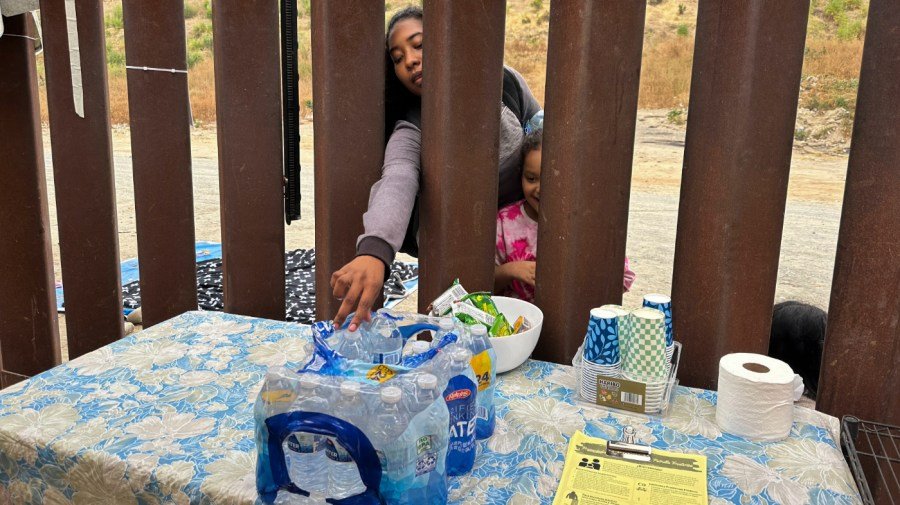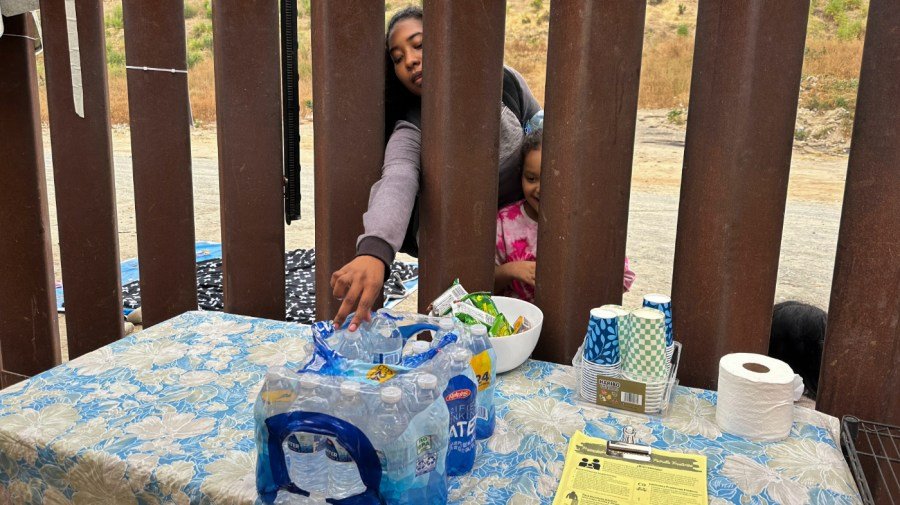No, asylum seekers are not invading the country

A slew of executive orders in the first week of Donald Trump’s second presidential term are predicated on his proclamation that “an invasion is ongoing at the southern border.” He has invoked emergency powers on this basis.
We are already witnessing the shutdown of asylum processing at the border, the deployment of the military to seal the border, the first arrests of Trump’s promised “mass deportations” and the transfer of migrants to the U.S. naval base at Guantánamo Bay, Cuba.
Putting aside the obvious fact that no foreign country is mounting an attack on the United States, even the more metaphorical notion of an invasion of undocumented foreigners is simply not true. Even Homeland Security’s implementation of a memo for the executive orders has acknowledged “a major reduction” in recent border crossings.
Many of the people who entered the U.S. unlawfully during the past decade, including many families with children, promptly presented themselves to the first Border Patrol agents they encountered. Not intending to do any harm, they crossed the border illegally because of the lack of legal pathways. The numbers were large, but it was not an “invasion.”
What was needed were more asylum officers and immigration judges to process protection cases and simpler, clearer standards for deciding claims fairly and efficiently, as well as a more clear-eyed recognition of U.S. labor needs.
Amy Pope, director general of the International Organization for Migration, a United Nations agency, wrote recently that “The demand for H-2B visas … the main visa for low-skilled nonagricultural workers … has rocketed,” and “the industries supposed to benefit from them have faced unprecedented shortfalls in the last several years” because U.S. labor-visa caps have been kept so low.
Last year, a significant change took place in the number of people entering the country irregularly. Department of Homeland Security statistics showed a more than 60 percent decrease in Border Patrol “encounters” between ports of entry along the southwest border from May to December. As the Biden administration opened legal pathways, irregular encounters dropped.
A Pew Research Center analysis of U.S. Border Patrol statistics found huge drops in southwestern border-crosser encounters between December 2023 and August 2024 for the four nationalities that had been provided the safe and legal mechanism of humanitarian parole. During the period when members of these nationality groups — Cubans, Haitians, Nicaraguans and Venezuelans — could be vetted, sponsored, and allowed orderly entry to the U.S. interior, Border Patrol encounters dropped 99, 98, 97, and 96 percent, respectively.
Yet, Trump terminated these programs on inauguration day by executive order, and this week his administration canceled the extension of Temporary Protected Status for more than 300,000 Venezuelans who soon will be at risk of being returned to the same dangerous conditions from which they fled.
If “invasion” implies chaotic, irregular entry, ending humanitarian parole is more likely to foment it. So are indefinite suspension of all refugee admissions and the closure of “safe mobility offices” in Latin America to identify and safely process refugees, including reunifying separated parents and children.
Another change that portends disorder is the end of the program that used a phone application to schedule appointments for asylum seekers at U.S. ports of entry along the southern border because people fleeing life-threatening conditions will take desperate measures to seek safety when legal avenues are closed.
These orders authorize ham-fisted responses to the very chaos they will provoke. One order specifies that “use of force policies prioritize the safety and security of Department of Homeland Security personnel and of members of the Armed Forces,” an invitation to law enforcement officers and soldiers to draw their weapons, which they are more likely to do when the president simultaneously announces, “America’s sovereignty is under attack.”
Trump’s rhetoric evokes a country overrun and besieged. It isn’t true. The U.S. government is fully capable of providing both security and compassion.
The danger posed by the rhetoric of invasion is not only to the migrants and refugees who will impale themselves on the razor-wire border fences intended to keep them out but also to the Americans living on the other side of the wall.
As police and immigration agents storm churches and schools, and as county jails, private for-profit detention centers and military bases fill and expand with potentially hundreds of thousands of indefinitely detained people, the public may begin to ponder the words of Timothy Snyder in his book, “On Tyranny”: “[W]hen leaders are able to convince people they are living in a state of emergency, citizens then trade real freedom for fake safety.”
Bill Frelick is the longtime refugee and migrant rights director at Human Rights Watch.




Post Comment